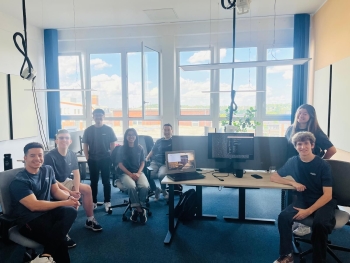During my time at RWTH Aachen University through the UROP program, I embarked on a groundbreaking research project aimed at leveraging artificial intelligence to enhance the diagnosis of mental health conditions. Recognizing the vast potential of social media as a data source, we focused on extracting patterns from Reddit, where many users openly discuss their mental health challenges and experiences.
Our primary objective was to construct a robust mental health dataset centered around self-diagnosed patterns for conditions such as bipolar disorder and depression. By applying natural language processing (NLP) techniques, we sought to identify linguistic cues that could predict mental health statuses more accurately. The core of our project involved building binary classifiers that could effectively distinguish between different mental health conditions based on user-generated content.
During the course of this research, we faced significant challenges related to the management and analysis of large-scale social media data. The sheer volume of data extracted from Reddit was immense, often comprising complex and unstructured text that required sophisticated processing. Handling such big data sets presented a substantial challenge, as our initial scripts took days or even weeks to run, demanding high levels of coding expertise and continuous monitoring to ensure accuracy and efficiency.
To overcome these obstacles, we utilized advanced hardware infrastructure that was capable of handling intensive computational tasks more effectively. This included upgrading our servers and employing more powerful processing units that could accelerate the data analysis phase significantly. Additionally, we implemented rigorous monitoring systems to track the progress of our scripts in real-time, allowing us to quickly identify and resolve any issues that arose during execution. We also developed a proactive approach to error management by anticipating potential failure scenarios and incorporating error-handling mechanisms into our scripts. This not only improved the robustness of our data processing workflows but also enhanced the overall reliability and validity of our research findings. Through these strategic adaptations, we were able to manage the data more efficiently and refine our analytical models to produce meaningful insights into mental health diagnosis using AI.
The outcomes of our research were profoundly encouraging. The dataset we developed outperformed existing datasets in several key areas, demonstrating its viability and potential for broader application. By training machine learning models on this new dataset, we achieved high levels of accuracy and significantly better performance in diagnostic tasks compared to previous models.
These results not only validate the effectiveness of using social media data for mental health diagnostics but also open the door to more personalized and timely interventions. The ability of our models to accurately interpret and classify complex patterns of speech provides a promising tool for mental health professionals seeking to understand and treat patients more effectively.
 My research team of 5 other undergraduate students from University of Pennsylvania, University of Florida, and University of British Columbia
My research team of 5 other undergraduate students from University of Pennsylvania, University of Florida, and University of British ColumbiaAs I reflect on the success and the learning gained from this experience, I am inspired to delve deeper into this field. The opportunity to conduct this research has been transformative, not only in terms of my academic development but also in shaping my career trajectory. I plan to publish the findings of this study and continue refining the models and techniques we've developed.
Looking ahead, I am committed to pursuing this line of research as part of my PhD thesis. The work I've started at RWTH Aachen has laid a solid foundation for my graduate studies, where I aim to explore even more sophisticated AI-driven methodologies for mental health diagnostics. Specifically, I intend to enhance the predictive power of our models and explore the integration of multimodal data sources, such as audio and video, to enrich our dataset and analysis.
This experience has cemented my passion for research and my commitment to making a meaningful impact in the field of mental health technology. The journey from a budding researcher to someone capable of contributing valuable insights to this critical area of study has been deeply rewarding. As I transition to graduate school, I am excited about the opportunity to continue this work, pushing the boundaries of what AI can achieve in healthcare and shaping the future of mental health diagnostics.
In conclusion, the path I've embarked on is filled with challenges and opportunities. Yet, the potential to significantly improve the diagnosis and treatment of mental health conditions using AI and machine learning is an endeavor worth pursuing. I am eager to build on the work we've started, driven by the belief that technology can truly transform lives for the better.